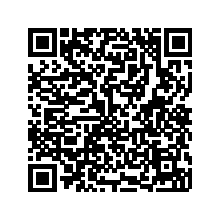A chemical survey of planets in our galaxy
2018年11月15日 14:30
主讲人 (Speaker): Giovanna Tinetti
主讲人单位 (Speaker's Institute): University College London
邀请人 (Invited by): 高扬
时间 (Time): 星期四, 2018/11/15 - 14:30 to 16:00
地点 (Location): 珠海校区海滨红楼17栋107会议室
摘要 (Abstract):
Thousands of exoplanets have now been discovered with a broad range of masses, sizes and orbits: from rocky Earth-size planets to large gas giants grazing the surface of their host star. However, the essential nature of these exoplanets remains largely mysterious: there is no known, discernible pattern linking the presence, size, or orbital parameters of a planet to the nature of its parent star. We have little idea whether the chemistry of a planet is linked to its formation environment, or whether the type of host star drives the physics and chemistry of the planet’s birth, and evolution. Work in exoplanet spectroscopy with current instruments has thus far been very piecemeal and mainly focused on gaseous planets.
The launch of the James Webb Space Telescope in 2021 will permit for the first time the remote exploration of smaller planets: super-Earths and sub-Neptunes. However, progress with the science questions spelled out above demands a very large, unbiased spectroscopic survey of exoplanets. In the next decade new dedicated space missions, such as the ESA's next medium-class science mission ARIEL, have been conceived to conduct such a survey and to explore the nature of exoplanet atmospheres and, through this, the key factors affecting the formation and evolution of planetary systems in our galaxy.
主讲人简介 (Speaker's CV):
Giovanna Tinetti is Professor of Astrophysics at University College London and director of the UCL Centre for Exoplanets Space Data Analysis. Select appointments and achievements include Principal Investigator of the European Research Council-funded program “Exo-Lights”, and Institute of Physics Moseley medal 2011. She is the Principal Investigator of ARIEL, the European Space Agency's next medium-class (M4) science mission; co-founder and co-director of Blue Skies Space Ltd, which aims at creating new opportunities for science space satellites. Awarded a PhD in Theoretical Physics from the University of Turin in Italy, Giovanna has continued her academic career as NASA Astrobiology Institute fellow at Caltech/JPL and then as European Space Agency external fellow in Paris, before moving to UCL in 2007 as Royal Society University Research Fellow.



